Dairy 3A Screeners
3-A sanitary vibratory screeners are the best option for removing impurities from milk, cream, cheese, and other dairy products because the vibration reduces pooling and allows more flow-through per square inch. Forced screening is not recommended as screen breakages are the second most common source of metal contaminants in dairy products (more on this in the Costco section below). As with most equipment we sell, these gap-free screeners have been optimized for the application and are available in sizes from 24 to 60 inches in diameter.
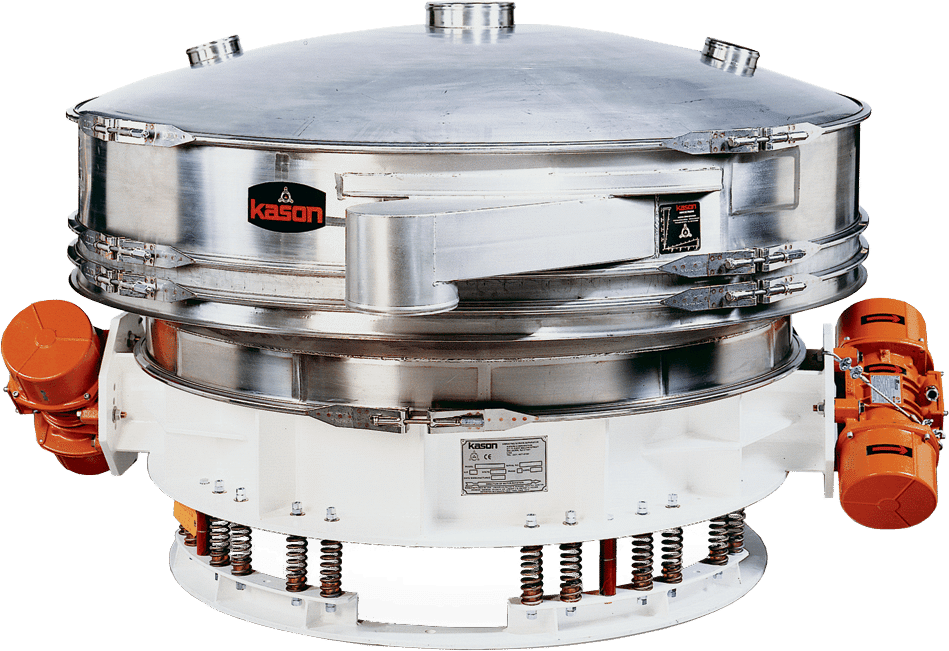
Designed to scalp oversize particles as small as 38 microns (400 mesh) from dry bulk materials or solids-laden slurries, this unit can be disassembled without any tools for rapid sanitizing. The interlocking flange of the screen frame completely encompasses the support ring of the screen, allowing the wire mesh of the screen to extend entirely to the interior walls of the frame, eliminating the gap found in conventional screeners where materials could accumulate.
The sanitary, gap-free design can eliminate contamination caused by bacterial growth while also improving sanitizing efficiency, making it suitable for food, dairy, and pharmaceutical products. The screens are mounted on support rings using FDA-approved epoxy and sealed with FDA-approved gasket material. They can also be provided with a mesh-tolerance certificate. The wire mesh screening material is available in 304, 316, and “magnetic” 400-series stainless steel that can be captured by a downstream magnet if broken. They can also be equipped with either single or twin imbalanced-weight gyratory motors and can be supplied with a dust-tight cover.
Low Profile Option
The low-profile option, also called a check-screener, uses two unbalanced-weight gyratory motors located on opposing exterior sidewalls instead of a single motor positioned below the screening chamber, which greatly reduces the minimum height requirement. This low-profile configuration allows on-size particles to pass quickly through the screen in a vertical discharge path at higher rates than circular screeners that have centrally mounted gyratory motors and horizontal discharge paths. Check-screeners do not have a discharge for sorting and is only for catching contaminants, so any contaminants/oversize material must be manually removed or eliminated using a vacuum.
A Word About Screeners and Costco’s X-Ray Exception
Although untrue, Costco believes that x-ray cannot find metals in dairy products, so they provided an exception in their universal x-ray requirements for suppliers. On these grounds they said dairy producers could use screeners instead of x-ray. If satisfying Costco’s requirements is your primary goal, these vibratory screeners are the safest to use. But if foreign material contamination is a high priority for you, we recommend using x-ray anyway, because broken screens are the largest cause of metal contaminants in dairy products, after mixers. If the cost of x-ray is prohibitive for your company, a cheaper precaution is to use a centrifugal sifter with a mesh screen. But either way, the mesh gap needs to be smaller than the maximum contaminant size.
If you have any questions or would like a quote, simply fill out the form below or give us a call!
Related Equipment
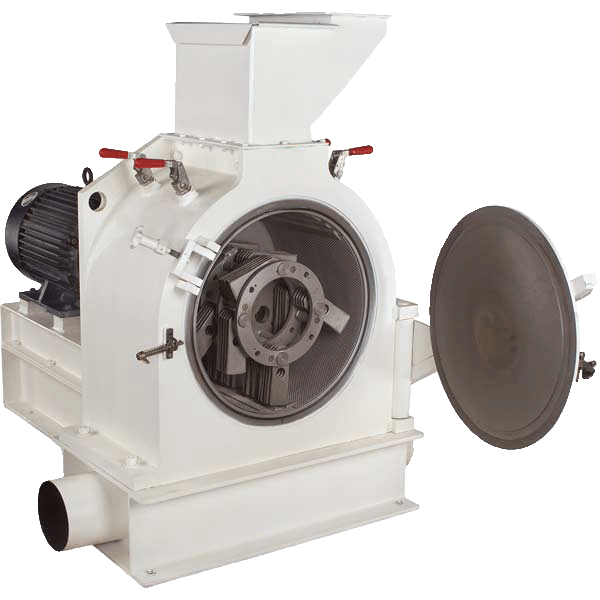
Hammer Mills
Hammer mills reduce particle size of materials by crushing it between two colliding pieces of metal, thus the name. This method is extremely effective and can reach very high throughputs with very little footprint. However it is very rough and not...
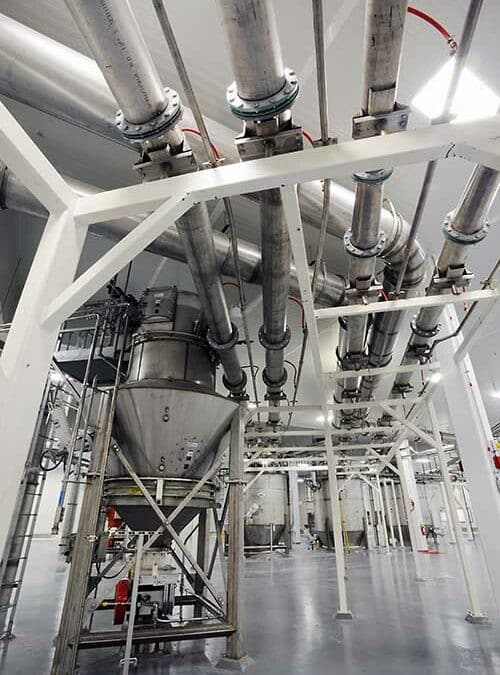
Pneumatic Conveyors
Pneumatic conveyors use pressurized air (CO2 or nitrogen can be used to keep temperatures low) to move materials through a pipeline. This type of conveying system is widely used in a variety of industries, including chemical, pharmaceutical, food...
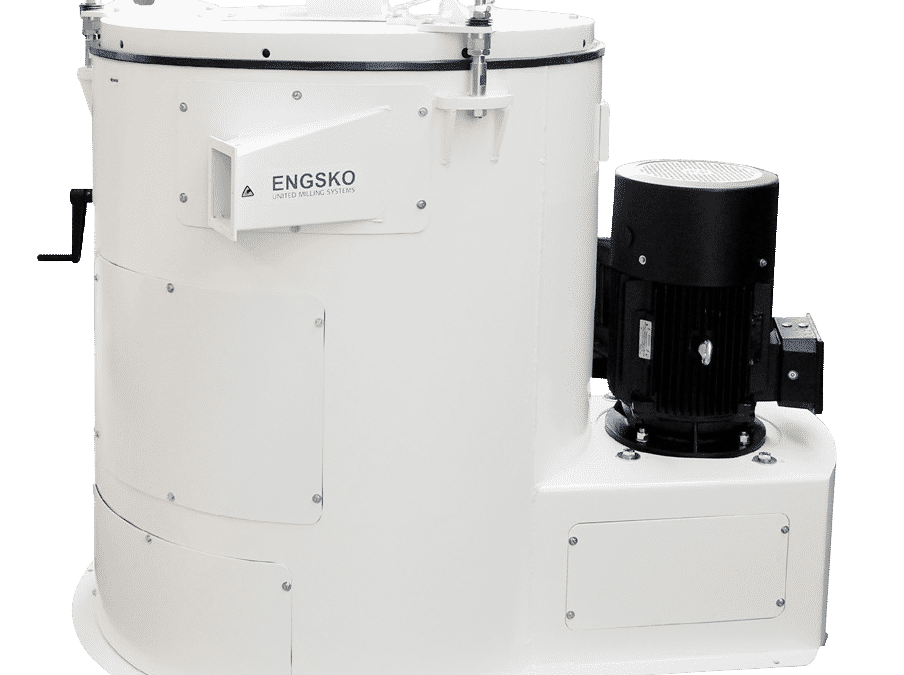
Commercial Flour Mill
A sturdy, long-lasting grain mill, the Commercial Flour Mill is the standalone version of the model intended for continuous-operation systems and thus includes more safety features. This heavy duty mill (Grindmaster 950 model) features a strong base, long-lasting shaft and bearings, and was built for high-throughput applications. Aimed at whole grain, whole meal, and grits, these mills are ideal for organic flours as the low temperatures maintained during the grinding process retains and protects the nutrient content of the grain. The Commercial Flour Mill features additional shrouding for operator safety and aesthetics versus standard industrial mills.
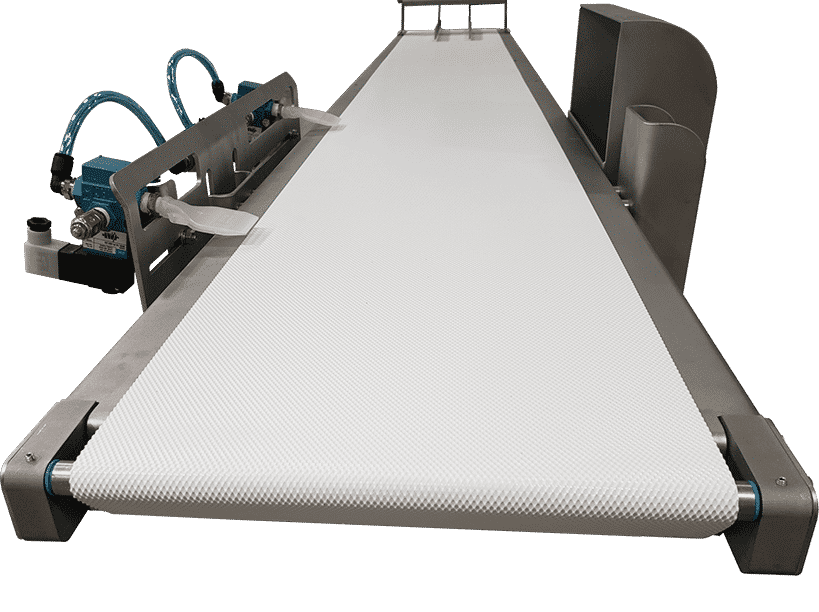
Flat Belt Conveyors
Flat belt conveyors are the simplest and most common of conveying methods and are used for relatively lower capacity/speed applications. They can be used on slopes up to a maximum of 25° for sticky solids, but applications where flat-belts are...
